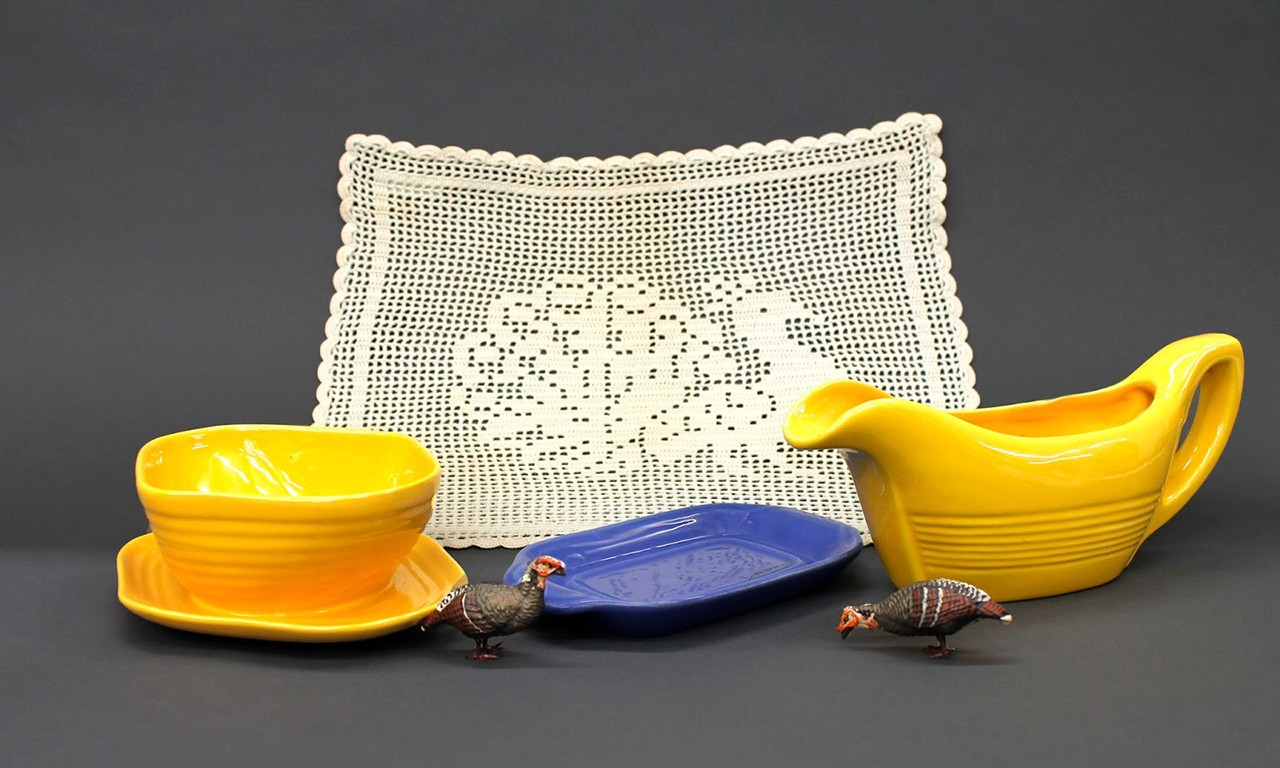 |
Bowers Thanksgiving Showcase
83.33.18a,b, 88.33.34, 359276.6-.7 and 32873.8-.9
Gifts of Mr. & Mrs. Edgar L. Marchesini, Miss Muriel Anderson, and Dr. & Mrs. Emory S. Moore, Jr. |
#FoodMotivated
Thanksgiving is on the record as being a day about giving thanks, but a quick analysis of the time your average American gives thanks on the holiday as opposed to the amount of time spent cooking and eating betrays that the day really celebrates an array of delicious foods. An important part of the feast—the only part which lingers after the leftovers have been gobbled up—is the tableware. These pieces represent longstanding Thanksgiving tradition and are objects to which we tend to assign special and sentimental significance. Including silverware, fine china, glassware, and linens, the tablescape expresses values and aesthetic ideals that are shared by all Americans and unique to each family. In this post we look at tableware that stemmed from an ideological shift occurring in the early 20th century which affected regional Californian design.
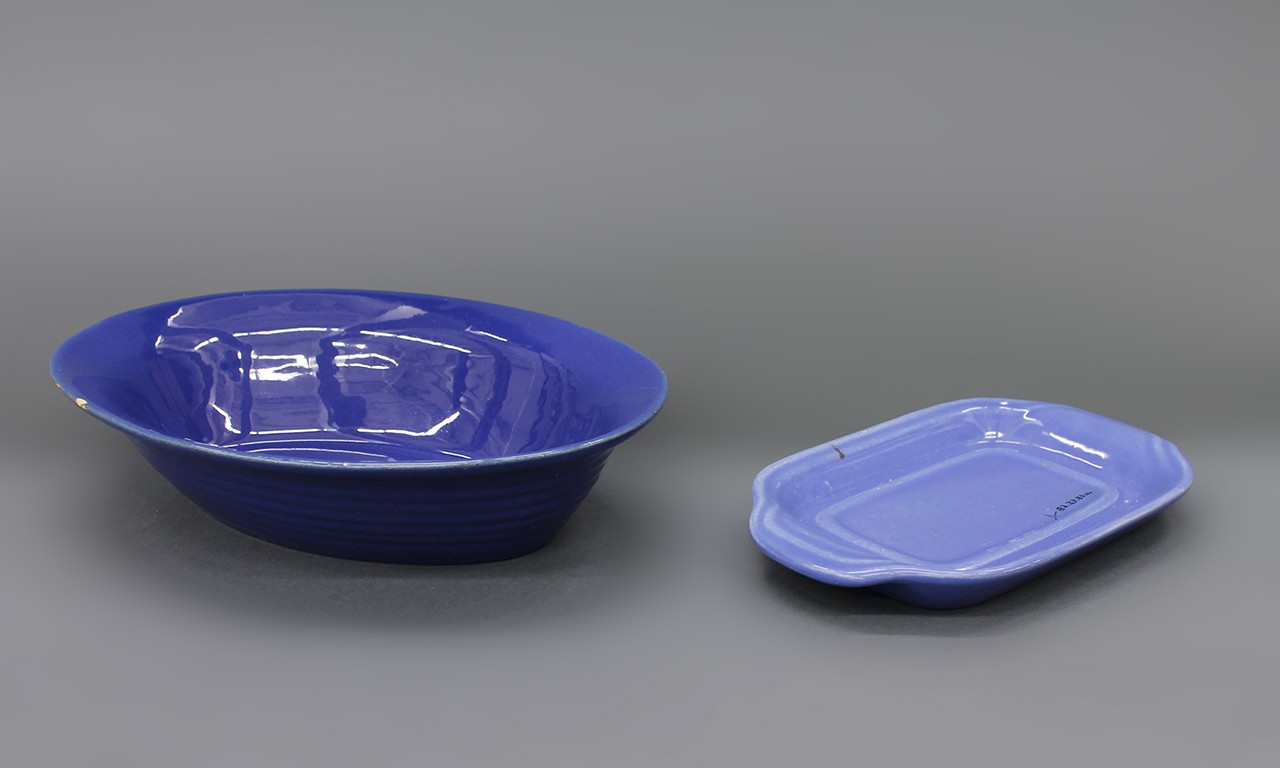 |
Serving Dishes, mid 20th Century
J.A. Bauer Pottery Company; Los Angeles, California
Glazed ceramic
83.33.34
Gift of Mr. & Mrs. Edgar L. Marchesini |
Mass Transfer
During the Great Depression, mass production and efficiency became paramount as the entire country struggled to keep their head above the water economically. These new trends ultimately came to define the Modernist era, a period roughly occurring in between the two World Wars. Art Moderne was born from the earlier Art Deco movement as an attempt to apply new theories about aerodynamics and other technological innovations to buildings and objects which were functionally unaffected by their diminished wind resistance. The result was an architecture and design aesthetic that frequently incorporated handsome curves to great effect. Household objects such as those in the image above blended these forms with glossy finishes.
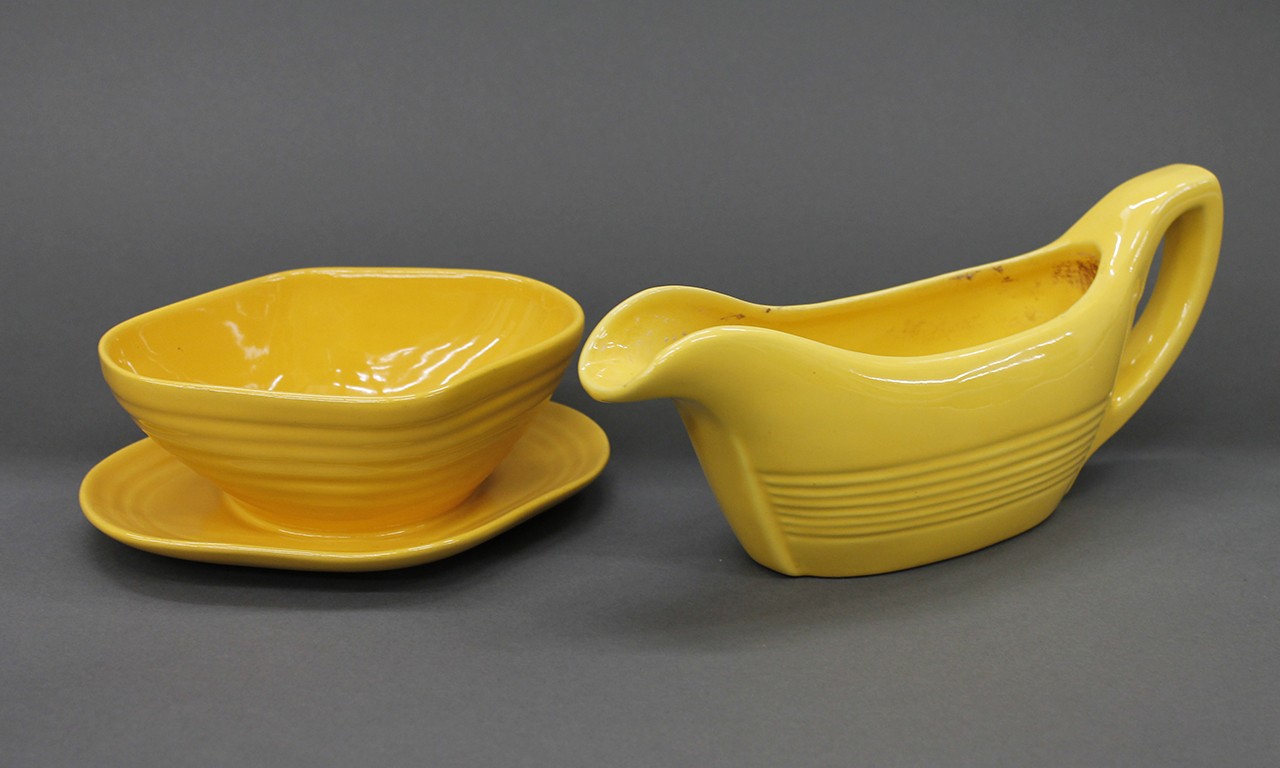 |
Gravy Boats, mid 20th Century
J.A. Bauer Pottery Company; Los Angeles, California
Glazed ceramic
83.33.18a,b
Gift of Mr. & Mrs. Edgar L. Marchesini |
Sale Boats
These design elements were the embodiment of the J.A. Bauer Pottery Company, whose gravy boats and butter pat are the subject of this post. The now highly collectible ceramics, known for their signature glazing and rich, saturated colors signified a sea change in kitchenware during the 1930s. This design movement, which some have referred to as Early California Pottery, soon became pervasive throughout the nation, as the appeal was its regional charm and simplicity. J.A. Bauer produced the popular Beehive ring pattern that creates a low relief ruffled design. These ceramics were manufactured starting in 1932, as minimalism and practicality were the focal points for the Great Depression consumer. Items needed to be cost-effective to remain affordable to the average American, all while competing to be the kind of object one would want to bring into their home. This was the era of the Works Progress Administration, when photographers like Dorothea Lange were commissioned to take photographs of migrant workers in American Exodus, when writer-turned politician Upton Sinclair glorified the possibility of a Utopian society amidst all the civil discord in 1930s California. It was these attitudes and more that are distilled in Bauer Pottery’s mission of being accessible to people of all classes, not just the very wealthy.

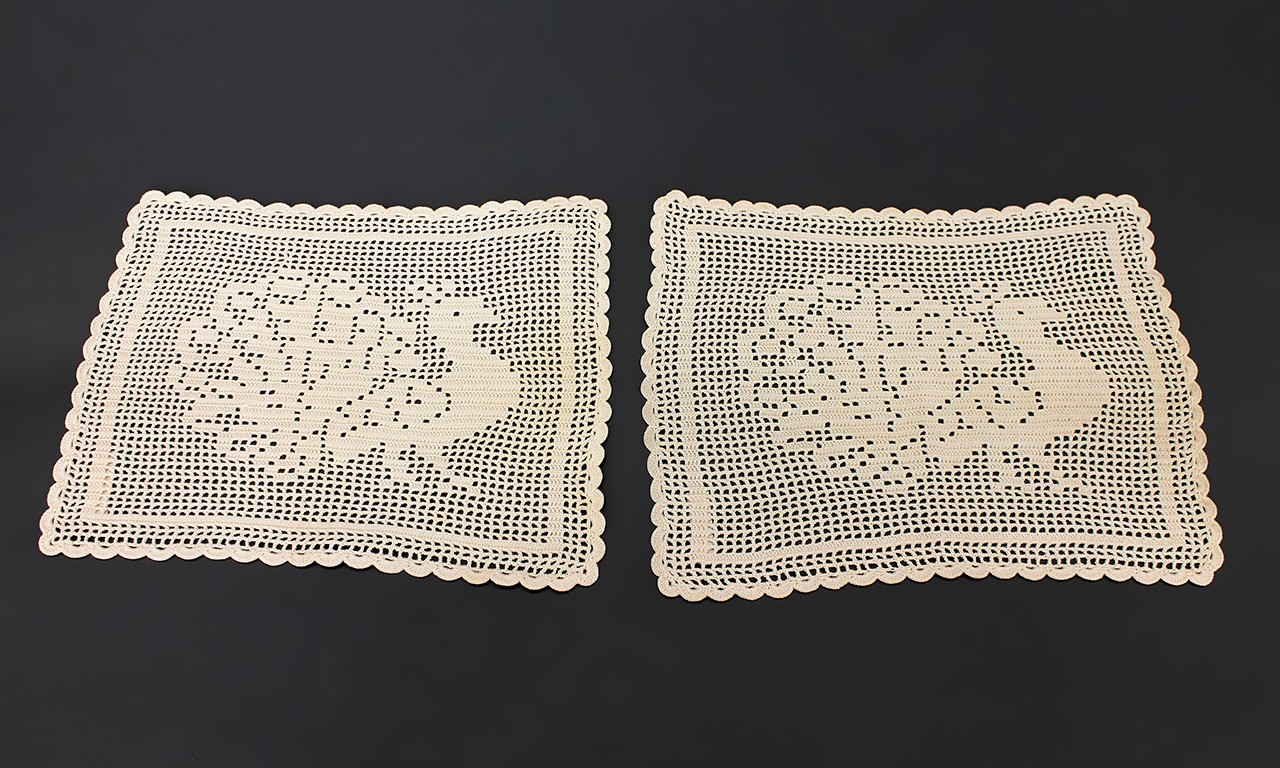 |
Pair of Turkey Antimacassars, 19th to 20th Century
Unknown Maker; United States
Crochet; 9 1/2 x 13 in.
359276.6-.7
Gift of Miss Muriel Anderson |
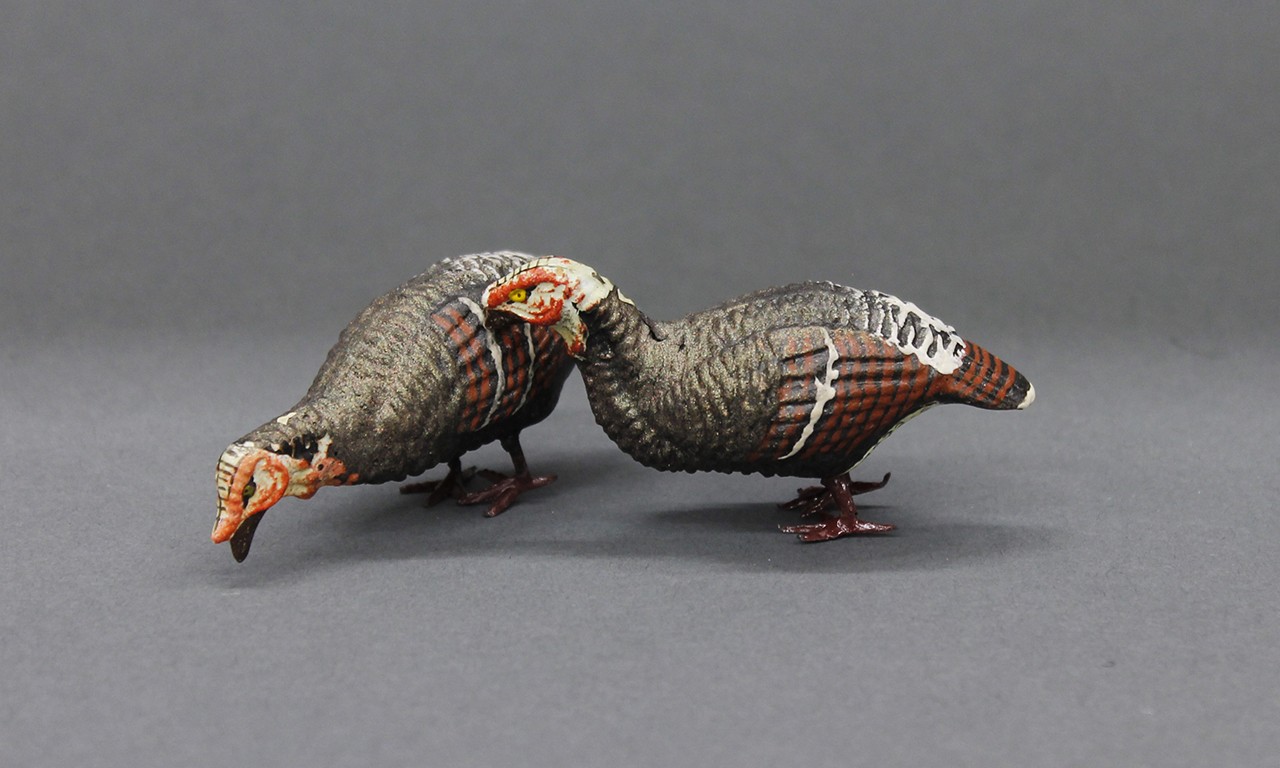 |
Toy Turkeys, early 20th Century
Unknown Maker; United States
Metal and enamel; 2 3/4 in.
32873.8-.9
Gift of Dr. & Mrs. Emory S. Moore, Jr. |
Second Helping
The Bauer Pottery in the banner image is also accompanied by two turkey toys and a crocheted turkey antimacassar, also from the Bowers’ permanent collection. The turkey toys were part of a larger “menagerie” of metal toys, from around the turn of the 20th century. The ephemeral qualities of the antimacassar, toys, and ceramics all speak to the festive Thanksgiving décor of the last century. The Bowers wishes you all a wonderful Thanksgiving with your friends and family!
Text and images may be under copyright. Please contact Collection Department for permission to use. References are available on request. Information subject to change upon further research.






Comments 1
So pleased so see Cousin Moderne’s avocation of the close study of “handsome curves” finally put some food on the family table—AND in matching crockery (for once).
Never were relatives so Thankful.
A. Deco
Chrysler Bldg.
NY, NY.